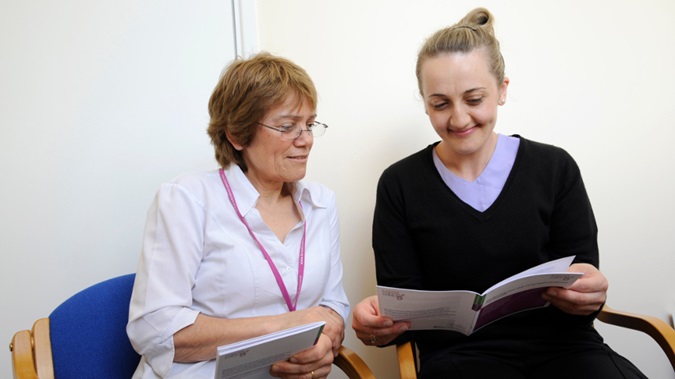New research has ruled out hormone signalling as the reason why men with acute myeloid leukaemia (AML) tend to have poorer outcomes than women, even when treated with the same intensive chemotherapy – a finding that helps refine future research and could influence clinical trial design.
The study, led by researchers at The Institute of Cancer Research, London, and The Royal Marsden NHS Foundation Trust found that although AML cells express high levels of androgen receptors – proteins that respond to male sex hormones like testosterone – they do not appear to influence how the cancer grows or responds to treatment. The findings suggest that hormone signalling is not responsible for the sex-based survival gap in AML, and that other biological factors are likely at play.
Published in Leukaemia, funding for the study was provided by Cancer Research UK, the National Institute for Health and Care Research (NIHR) Biomedical Research Centre and the pharmaceutical and biotechnology company Bayer, who also provided the drug. The study was supported by The Royal Marsden Cancer Charity.
High receptor levels, but not the answer
To explore whether hormone signalling might explain this survival gap, the research team analysed more than 4,000 patients enrolled in two major UK acute myeloid leukaemia clinical trials, alongside lab experiments on AML cells for androgen receptor expression. They found high levels of these receptors in both male and female patients and observed that these levels were associated with worse survival, even if the receptors themselves weren’t helping the cancer grow.
However, when AML cells were exposed to testosterone-like hormones in the lab, the hormones had no effect on cell growth, survival or response to chemotherapy. Blocking the receptors with drugs commonly used in prostate cancer also failed to improve outcomes – either alone or in combination with chemotherapy. Even when studying the disease in mice, the combination therapy did not outperform standard treatment.
They also discovered that a common immune signal, called IL-6, may drive up these receptor levels – suggesting that inflammation, rather than hormones, may play a role in acute myeloid leukaemia outcomes.
The team also investigated oestrogen signalling, given its potential relevance to female biology. While AML cells expressed some oestrogen receptors, the hormone had no impact on cell viability or treatment response.
Refining the search for answers
The research team found that men had a lower remission rate of 86 per cent and a slightly higher relapse rate of 43 per cent than female patients – 89 and 40 per cent respectively – and that male sex remained an independent risk factor for poorer survival, even after accounting for genetic profile differences.
While the findings do not point to a new treatment strategy, they help clarify a key question in acute myeloid leukaemia research and rule out a previously plausible explanation. The study suggests that other factors – such as differences in drug metabolism, immune responses or mutation patterns – may be more important in driving sex-based differences in AML outcomes.
Previous research has shown that men may clear chemotherapy drugs more quickly than women, potentially reducing their effectiveness. Women also tend to have stronger immune responses, which could help control leukaemia more effectively. These areas now warrant closer investigation.
The study also highlights the importance of considering sex as a biological variable in future AML research and clinical trial design. Understanding how sex interacts with treatment could lead to more personalised and effective therapies for all patients.
A step forward in understanding AML biology
Senior author Dr David Taussig, Associate Honorary Faculty in Leukaemia at the ICR and Consultant Haematologist at The Royal Marsden, said:
“We found that acute myeloid leukaemia cells express high levels of androgen receptors, but these receptors don’t seem to help the cancer survive. That’s an important finding – it tells us that hormone signalling isn’t the reason men do worse with AML, and helps us focus on other, more promising areas.”
The team is now exploring how factors such as immune function and drug clearance contribute to AML outcomes, and whether these can be targeted to improve survival.
First author Dr Farideh Miraki-Moud, Higher Scientific Officer in Cancer Biology at the ICR, said:
“While much work remains, the findings mark a valuable step in refining our understanding of the biology of acute myeloid leukaemia – and guiding future research towards the mechanisms that matter most. We hope this will ultimately lead to more effective, personalised treatments for patients.”

